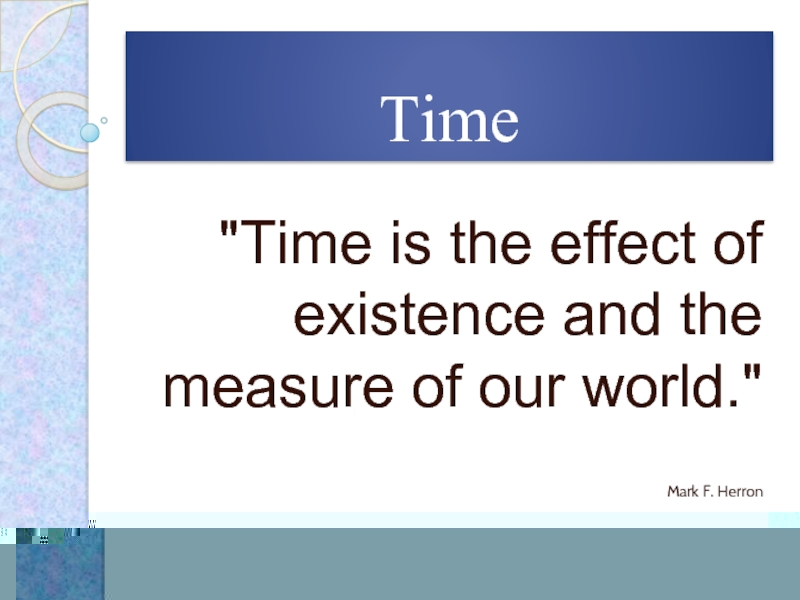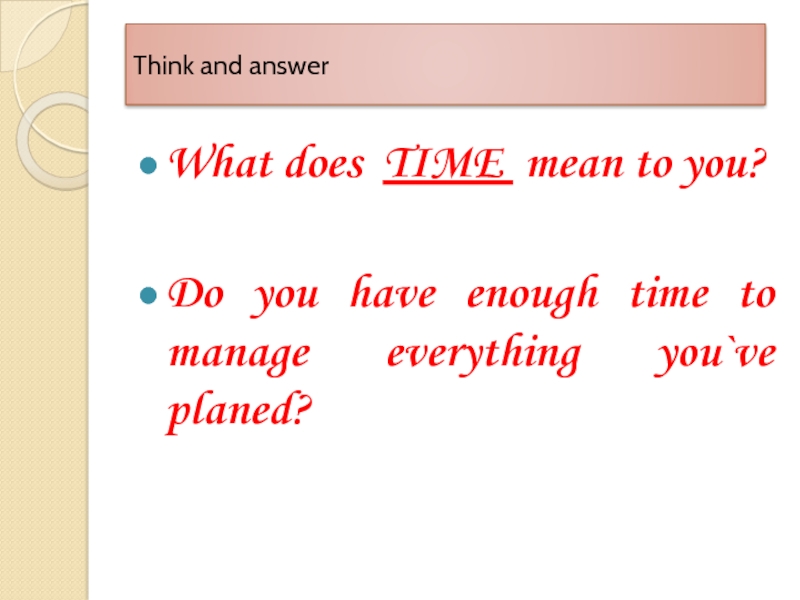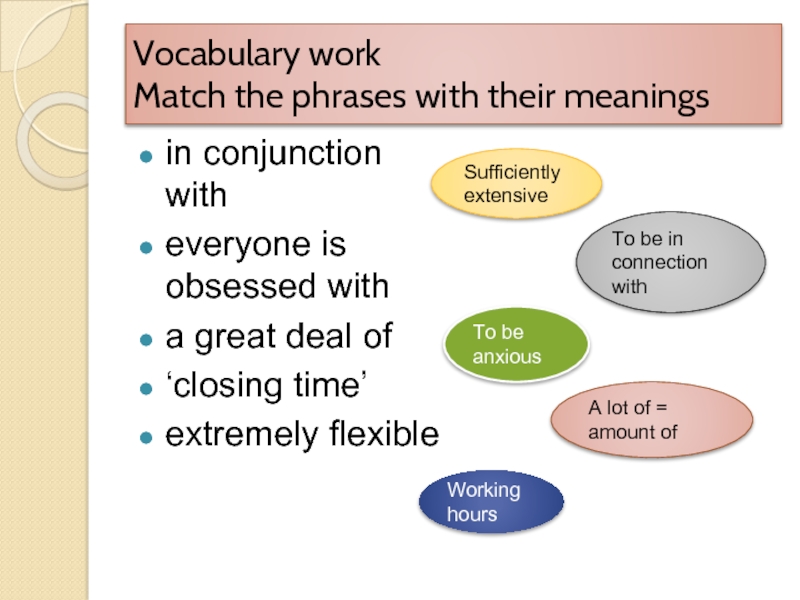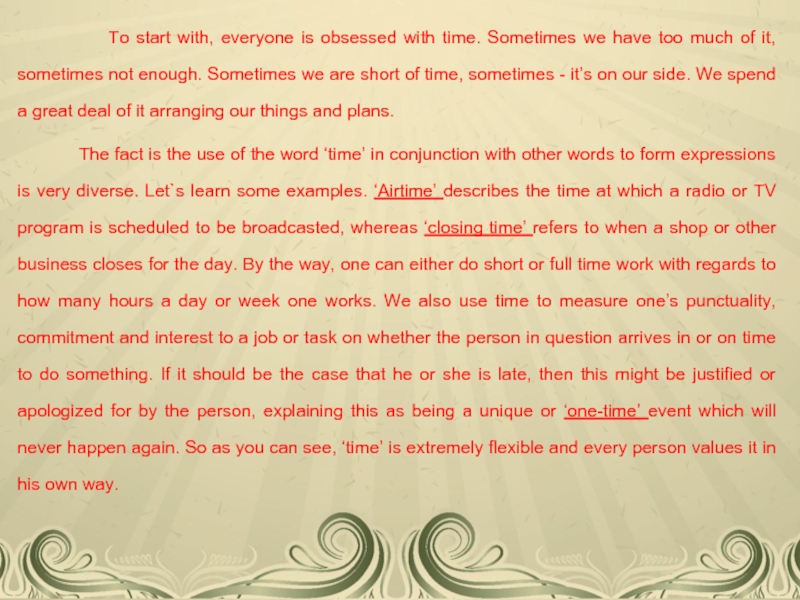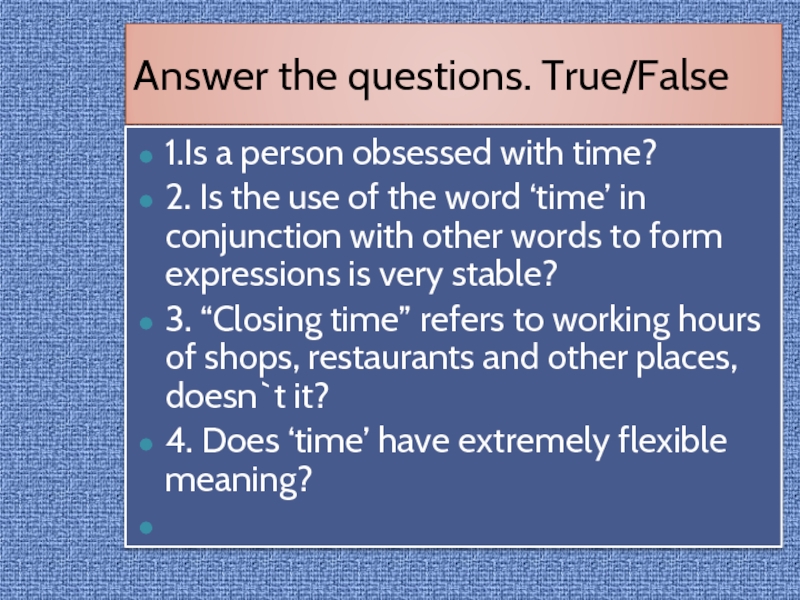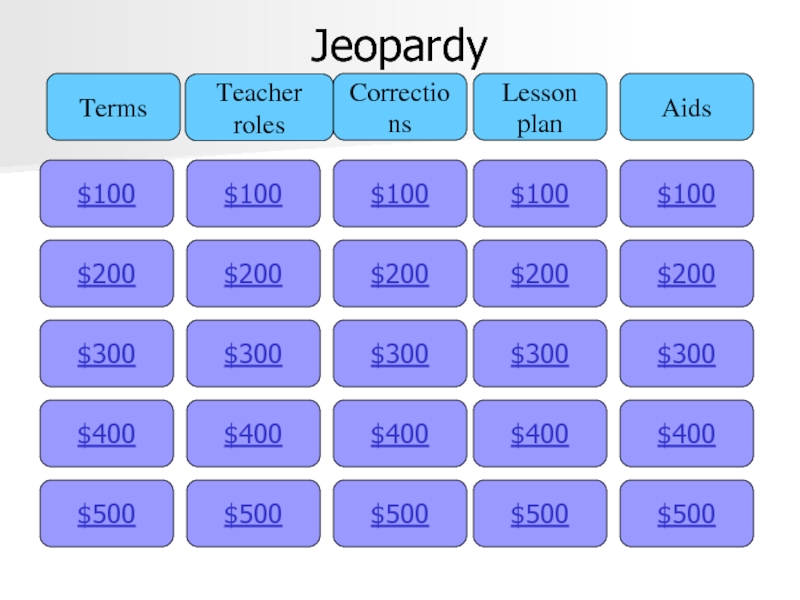world."
Mark F. Herron
- Главная
- Разное
- Дизайн
- Бизнес и предпринимательство
- Аналитика
- Образование
- Развлечения
- Красота и здоровье
- Финансы
- Государство
- Путешествия
- Спорт
- Недвижимость
- Армия
- Графика
- Культурология
- Еда и кулинария
- Лингвистика
- Английский язык
- Астрономия
- Алгебра
- Биология
- География
- Детские презентации
- Информатика
- История
- Литература
- Маркетинг
- Математика
- Медицина
- Менеджмент
- Музыка
- МХК
- Немецкий язык
- ОБЖ
- Обществознание
- Окружающий мир
- Педагогика
- Русский язык
- Технология
- Физика
- Философия
- Химия
- Шаблоны, картинки для презентаций
- Экология
- Экономика
- Юриспруденция
Time is the effect of existence and the measure of our world презентация
Содержание
Слайд 2Think and answer
What does TIME mean to you?
Do you have enough
time to manage everything you`ve planed?
Слайд 3Vocabulary work
Match the phrases with their meanings
in conjunction with
everyone is obsessed
with
a great deal of
‘closing time’
extremely flexible
a great deal of
‘closing time’
extremely flexible
Sufficiently extensive
Working hours
A lot of = amount of
To be in connection with
To be anxious
Слайд 4 To start
with, everyone is obsessed with time. Sometimes we have too much of it, sometimes not enough. Sometimes we are short of time, sometimes - it’s on our side. We spend a great deal of it arranging our things and plans.
The fact is the use of the word ‘time’ in conjunction with other words to form expressions is very diverse. Let`s learn some examples. ‘Airtime’ describes the time at which a radio or TV program is scheduled to be broadcasted, whereas ‘closing time’ refers to when a shop or other business closes for the day. By the way, one can either do short or full time work with regards to how many hours a day or week one works. We also use time to measure one’s punctuality, commitment and interest to a job or task on whether the person in question arrives in or on time to do something. If it should be the case that he or she is late, then this might be justified or apologized for by the person, explaining this as being a unique or ‘one-time’ event which will never happen again. So as you can see, ‘time’ is extremely flexible and every person values it in his own way.
The fact is the use of the word ‘time’ in conjunction with other words to form expressions is very diverse. Let`s learn some examples. ‘Airtime’ describes the time at which a radio or TV program is scheduled to be broadcasted, whereas ‘closing time’ refers to when a shop or other business closes for the day. By the way, one can either do short or full time work with regards to how many hours a day or week one works. We also use time to measure one’s punctuality, commitment and interest to a job or task on whether the person in question arrives in or on time to do something. If it should be the case that he or she is late, then this might be justified or apologized for by the person, explaining this as being a unique or ‘one-time’ event which will never happen again. So as you can see, ‘time’ is extremely flexible and every person values it in his own way.
Слайд 5Answer the questions. True/False
1.Is a person obsessed with time?
2. Is the
use of the word ‘time’ in conjunction with other words to form expressions is very stable?
3. “Closing time” refers to working hours of shops, restaurants and other places, doesn`t it?
4. Does ‘time’ have extremely flexible meaning?
3. “Closing time” refers to working hours of shops, restaurants and other places, doesn`t it?
4. Does ‘time’ have extremely flexible meaning?
